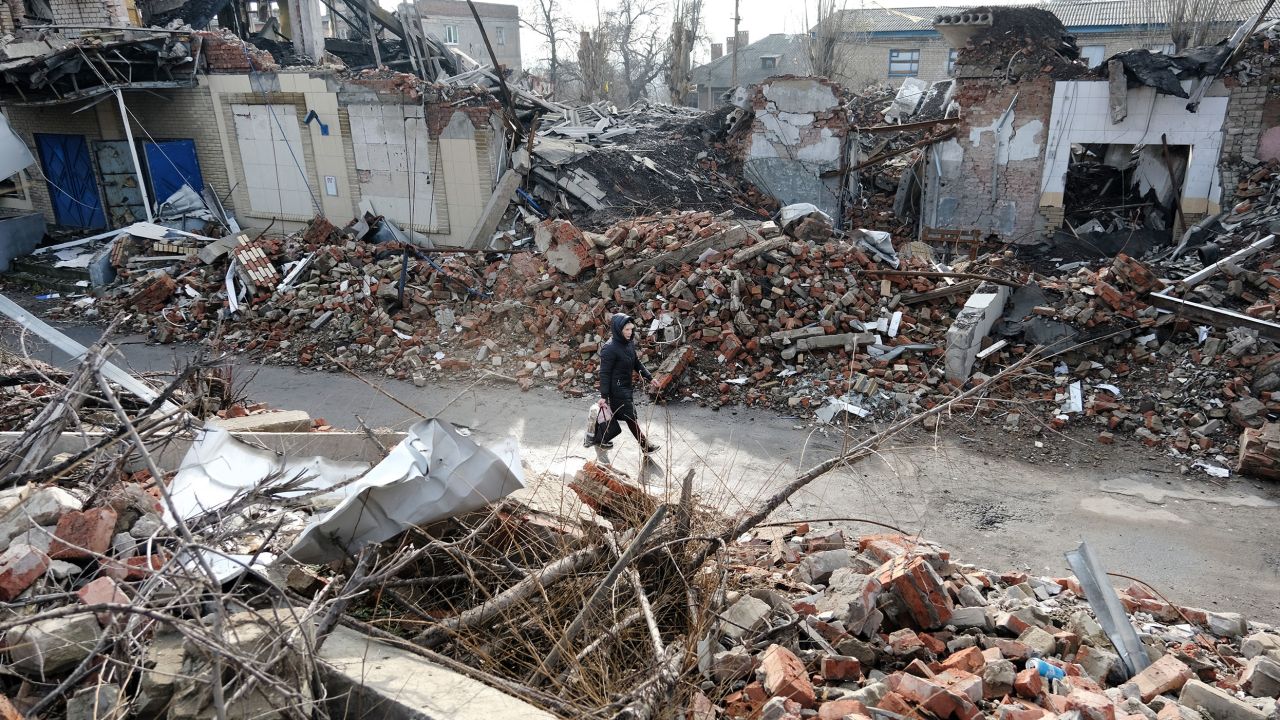What is a tactical nuclear weapon?
Hear what an expert has to say 2:48
Editor's Note:
Jerry Brown is Executive Chairman of the Bulletin of Atomic Scientists and was Governor of California for four terms, from 1975 to 1983 and from 2011 to 2019. Sharon Squassoni is Co-Chair of the Bulletin of Atomic Scientists Council on Science and Safety and Research Professor at the George Washington University Elliott School of International Affairs Institute for International Science and Technology Policy.
Daniel Holz is co-chair of the Bulletin of Atomic Scientists' Science and Safety Council and a professor at the University of Chicago, the Enrico Fermi Institute, and the Kavli Institute for Cosmological Physics.
The opinions expressed in this article belong solely to their authors.
(CNN) --
Today, due in large part to the growing dangers of Russia's senseless invasion of Ukraine, the Bulletin of Atomic Scientists' Board of Science and Safety moved the hands of the Doomsday or "doomsday" Clock closer. midnight than they've ever been.
This is the first change in three years in the Clock time, which now stands at 90 seconds after midnight.
Never in the 76-year history of the Doomsday Clock have we been so close to a global catastrophe.
Founded by Albert Einstein and the University of Chicago scientists who developed the first atomic weapons, the Clock is a universally recognized indicator of the world's profound vulnerability to nuclear weapons, climate change and disruptive technologies.
The closer to midnight, the greater the existential danger.
As the war in Ukraine approaches its second year, the world is at a very dangerous time.
Tens of thousands of people, many innocent civilians, have been killed.
No obvious solution to the conflict is in sight.
What is and what does the Clock of the Apocalypse or the Last Judgment mean?
What time does it mark and what happens at 12?
This is in stark contrast to the goodwill and mutual understanding that followed the fall of the Soviet Union, when Russia joined the United States and Britain and solemnly declared that they would "respect the independence and sovereignty and existing borders of Ukraine" and "they would refrain from the threat or use of force against the territorial integrity or political independence of Ukraine."
A historic agreement was reached.
In return, Ukraine gave up its nuclear arsenal, then the third largest in the world, and became a signatory to the landmark Nuclear Non-Proliferation Treaty.
Russia blatantly violated its commitments in 2014 when it invaded eastern Ukraine and annexed Crimea.
Now, it has launched a full-scale military invasion of the country, with Russian President Vladimir Putin even threatening the use of nuclear weapons.
These unprecedented threats, against the backdrop of brutal and unpredictable warfare, raise the terrifying possibility of nuclear weapons being used for the first time since 1945, whether by accident, some miscalculation, or even a deliberate decision by Putin himself.
Disturbingly, Russia has taken its war even to the sites of the Chernobyl and Zaporizhia nuclear reactors, violating international protocols and risking the widespread release of radioactive materials.
Efforts by the International Atomic Energy Agency to protect the plants have so far been rebuffed and the threat of catastrophe persists.
United Nations Secretary-General António Guterres recently stressed that the world is entering "a time of nuclear peril the likes of which has not been seen since the height of the Cold War."
Guterres was speaking at a UN conference on the Nuclear Non-Proliferation Treaty, now undermined after Russia broke its promise to respect Ukraine's sovereignty.
Would Russia be willing to use nuclear weapons in a last-ditch attempt to win the war in Ukraine?
The only remaining nuclear weapons treaty between the United States and Russia, New START, is also in jeopardy.
Unless both sides resume negotiations and find a solid foundation for further arms reductions, the treaty will expire in 2026. This would eliminate current mutual inspections, end nuclear deployment limits, and likely incentivize an unpredictable and volatile nuclear arms race. amid the development of increasingly advanced weapons.
This would further deepen mistrust, perhaps irreversibly, and increase the likelihood of nuclear war.
While these threats are immediate and horrifying, there are others.
Countries in both Asia and the Middle East are considering building nuclear arsenals.
Tensions between the United States and China are on the rise.
At the same time, the world is increasing its use of fossil fuels and emitting heat-trapping greenhouse gases.
Covid-19 continues to kill large numbers of people and mutate in dangerous new ways, making future pandemics a near certainty.
As science advances, so do threats, both in biosecurity and disruptive technologies.
If ever there was a time for world leaders to take action to turn back the clock, it is now.
Until then, it's 90 seconds to midnight.
ApocalypseClock

